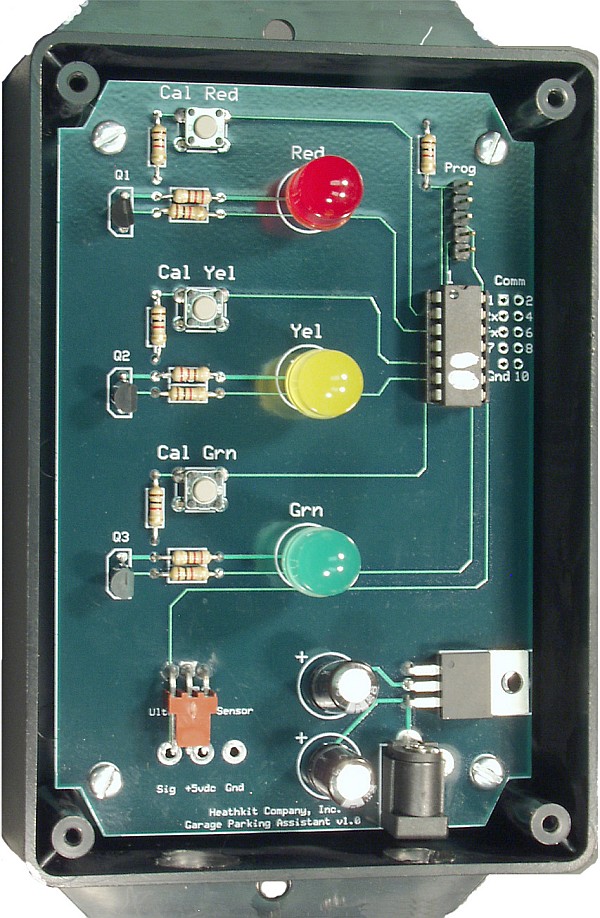After twenty years, Heathkit is getting back into the electronics kit business. Many electronics hobbyists who were active in the second half of the last century remember building kits from Heathkit. A wide range of devices were available in kit form, from oscilloscopes to amateur radio receivers and transmitters, to computer trainers and EPROM programmers. Like many electronics enthusiasts, I was sorry to see them exit the kit business in 1992.
Twenty years later, though, Heathkit appears to be back. Their first kit — a garage parking assistant — is already available. Although the technology is modern (the kit appears to use an ultrasonic sensor very much like Parallax’s PING))) sensor), the through-hole construction, solid-looking engineering, and apparent attention to ease of construction appear to be there.
For $129.00US, though, it ought to be! Ultrasonic sensors aren’t dirt-cheap, true — the PING))) sensor costs about $30 — but even so, this kit could easily be build for half of what Heathkit is asking, including picking up the parts and a basic soldering outfit from Radio Shack. An ultrasonic proximity sensor is a fairly straightforward project, especially if something like the very easy-to-use PING))) sensor is used. A single microcontroller, power supply, a few resistors, a PC board, and a case would be about all you would need.
Perhaps Heathkit is including tools to make the package a better deal, though. The board includes a programming header for what appears to be a PIC or similar microcontroller. The addition of a PIC programmer such as Microchip’s PICKIT2 or PICKIT3 would make the $129 price tag a lot more appealing to a hobbyist wanting to learn more about microcontroller-based design. Unfortunately, no information about the kit specifics is available on Heathkit’s site. Without this information, it’s hard to make an informed decision on whether the kit contents are worth the high price.
It’s nice to see a legendary Maker-friendly company like Heathkit get back into the DIY business. However, it’s likely that Heathkit’s potential customers fall into one of two categories: former Heathkit enthusiasts who have fond memories of building vintage Heathkit gear — and newcomers to the hobby, who may have heard of Heathkit but who are too young to really remember the way it was. The former group will probably have long since moved beyond simple kits like garage parking assistants — and the second group is probably ‘Net-savvy enough to know that these days, Heathkit has serious, low-cost, high-quality competition from the likes of Adafruit, Sparkfun, Element14, and Jameco.
Even Radio Shack, not normally known for low prices, has been doing a much better job recently. Heathkit will need to step up its game — quickly — to remain relevant. I wish them luck.


